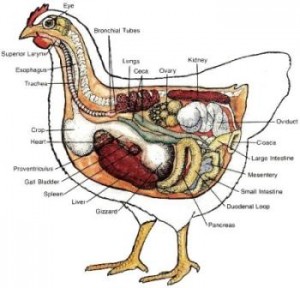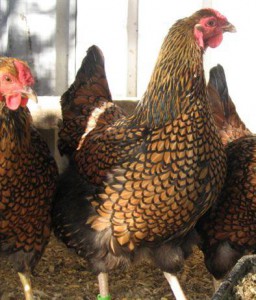 There is a bit more work involved in looking after a backyard flock than just shoving them in their coop while they do their thing “She’ll be right”… or will she?
There is a bit more work involved in looking after a backyard flock than just shoving them in their coop while they do their thing “She’ll be right”… or will she?
Chickens – Minimalists or High Maintenance?
There are a few factors to keep in mind with the care of chickens. Chickens need to be in optimum condition year round to maintain good results of egg production.There are many different factors that can affect a hen’s egg laying, most of which are out of our control. Climate, thunderstorms, aeroplanes and generally loud noises can temporarily bring egg production to a stand still. Other factors that are in our control are detailed below.And for accommodation don’t forget to check out the separate section on housing.
Basic care
Chickens are fairly easy to look after, particularly if they are allowed to free-range. This provides the m with fresh greens, weeds and grasses, bugs and dust for bathing, which is beneficial to health and morale. Your chickens will do a lot better if you provide them with a warm, clean, dry and drought free coop.
m with fresh greens, weeds and grasses, bugs and dust for bathing, which is beneficial to health and morale. Your chickens will do a lot better if you provide them with a warm, clean, dry and drought free coop.
It is important to supply fresh, clean water at all times as they will often shun dirty water. This is important whether your flock is free-ranging or not. You can use store bought waterers or you can recycle containers like ice-cream containers or trimmed down milk bottles for this purpose. To avoid water being spoilt you can raise your water containers off the ground to about the chickens back height but make sure it’s still easily accessible for them. Chickens usually will not travel far in search of water. It is important to place water containers in areas the chickens go to most, usually just near the coop is a good place to start. Ensure they have water inside the coop as well.
Feeding
Chickens should be fed a wide range of foods for a complete and balanced diet. This should be made up of mixed grains, pellets, mash and green foods which should be the main part of the diet. Often people prefer pellets over mash as this often is less wastage. Wheat is a favourite of chickens, but should be fed sparingly. Germinated wheat is good to feed during colder months or during the moult. Table scraps are another huge favourite as chickens are omnivorous and will eat just about anything, even the eggs shells of their own eggs which you had for breakfast. Some people recommend not feeding your birds certain table scraps, such as potato peels or avocado skins but if you’re free-ranging and your birds aren’t pushed for food they will pick and choose what they want to eat. Avoid feeding your chooks anything chicken, although they are omnivorous and will eat chicken meat, it is strongly recommended that this should not be given to them.
Grit and supplements
Chickens require grit. This is used in place of teeth to grind up food. Do not confuse this with Ground Oyster Shells or similar, as these are dissolved in the stomach and should be used to supply calcium. The grit you want to use should be more like river sand and if your hens are free-ranging than they should be able to find enough grit themselves. Some people like to give their chickens salt. This should be fed sparingly. A good way to supply your hens with salt is by feeding Kelp or Kelp products, they are also quite fond of fish which is another way of getting salt.
Predators
Predators are another huge factor when keeping chooks. Any gaps in the netting or building that you can get your hand into are more than big enough for rats to get into and chicken eggs are a favourite delicacy. Some hawks take a liking to chickens, as do the native falcon on rare occasions. You can keep your birds in a flight or run that has a netting roof to deter this, or, if free-ranging nothing beats the watchful eyes of a Rooster and it’s quite neat watching everyone dive into trees when a hawk is about. Neighborhood cats don’t pose too much of a risk, as domestic cats are often scared of chickens but feral cats are a whole other story and will easily take out a full grown bird. Other predators to watch out for are possums, stoats, ferrets and the neighbor’s dog.
Controlling your flock
Most Chickens can only fly for short distances, such as over a hedge or fence, however, some breeds like the Sebright Bantam are well adapted to longer spurts of flight. A way to avoid this is to gently clip flight feathers on one wing only, clipping both wings enables the birds to still fly. Wings should be clipped up to twice a year or generally after a moult.
Parasites and diseases
Some people say it’s important to worm your chickens, others say it’s not a good idea. If you do decide to worm your flock keep in mind that their eggs won’t be able to be consumed for some time after worming. Check the time with your vet as is it will vary between different products.
As well as all of these, from time to time chickens can be susceptible to several parasites, including lice, mites, fleas, as well as other diseases. If you think something is wrong with your chickens, your safest bet is to consult your local vet.
Contact us if you think we’ve missed something here.

